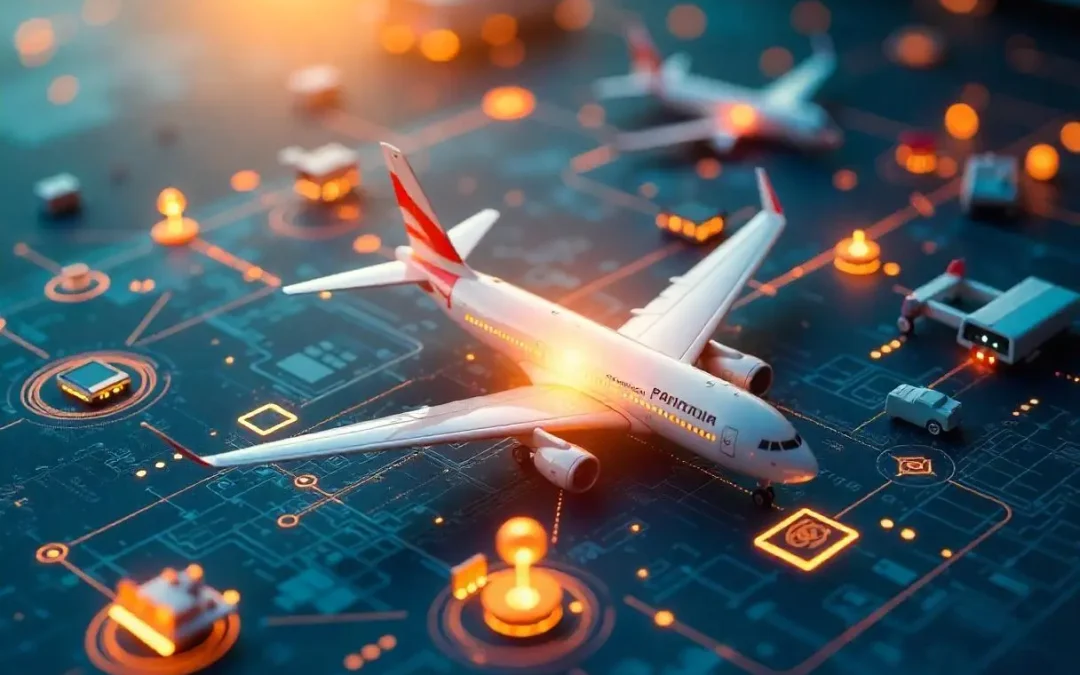Customer Relationship Management (CRM) plays a pivotal role in the aviation industry, where enhancing customer experience and maintaining efficient operations are of utmost importance. CRM in aviation encompasses various strategies and technologies that airlines and airports use to manage interactions with customers, streamline data management, and improve overall service delivery. In this article, we will explore the benefits of CRM systems in aviation, their applications, key features, and future trends that are shaping this critical area of the industry.
Understanding CRM in Aviation
What is CRM?
CRM refers to the practices and technologies that organizations implement to manage customer interactions and data throughout the customer lifecycle. The primary objective of CRM is to enhance customer satisfaction, foster loyalty, and drive sales growth.
Significance of CRM in Aviation
In the aviation sector, effective CRM is crucial for:
- Improving Customer Experience : Provides personalized service and quick resolution of queries.
- Operational Efficiency : Streamlines communication between various departments.
- Data Management : Centralizes customer information for quick access and analysis.
Benefits of CRM Systems in Aviation
1. Enhanced Customer Experience
A tailored experience is vital in the aviation industry, and CRM systems enable airlines and airports to:
- Personalize Interactions : Use customer data to customize communications and offers based on preferences and travel history.
- Improve Response Time : Enable staff to access customer information quickly to resolve issues and inquiries efficiently.
2. Increased Operational Efficiency
CRM systems help aviation organizations streamline various processes, including:
- Centralized Data Management : Integrating disparate customer data into a single system for easy access.
- Automated Processes : Automating routine tasks such as scheduling flights, notifying changes, and managing bookings.
3. Better Marketing Strategies
With accurate customer data, airlines can:
- Target Campaigns : Create tailored marketing campaigns based on customer preferences and behaviors.
- Increase Customer Retention : Identify at-risk customers and take actions to retain them, such as special offers or communication.
Key Features of CRM in Aviation
1. Customer Data Management
CRM systems enable airlines to gather, store, and manage essential customer data, including:
- Demographics : Age, gender, and nationality.
- Travel History : Previous bookings, flight routes, and preferences.
2. Multi-Channel Communication
Effective CRM solutions facilitate interactions across various channels:
- Email and SMS : Automated notifications and promotions.
- Social Media : Responding to customer inquiries on platforms like Twitter and Facebook.
3. Analytics and Reporting
CRM systems provide analytical tools to help organizations:
- Track Customer Behavior : Understand how customers interact with the airline.
- Measure Effectiveness : Analyze the success of marketing campaigns and service initiatives.
Applications of CRM in Aviation
1. Airline Customer Service
Airline customer service teams use CRM systems to:
- Manage Bookings : Access customer profiles while handling booking queries or changes.
- Resolve Complaints : Track and resolve customer complaints effectively by having all interaction history at hand.
2. Airport Services
Airports benefit from CRM systems by:
- Streamlining Check-In Processes : Reducing waiting times through quick access to passenger information.
- Personalized Airport Experiences : Offering tailored services based on passenger preferences or frequent traveler status.
3. Loyalty Programs
CRM systems are essential in managing loyalty programs, allowing airlines to:
- Track Points and Rewards : Easily manage customer rewards and entitlements within the system.
- Send Targeted Offers : Inform loyal customers about exclusive deals and upgrades based on their engagement level.
Future Trends in CRM in Aviation
1. Artificial Intelligence
AI can significantly enhance CRM capabilities by:
- Predictive Analytics : Predicting customer needs and preferences to create proactive service solutions.
- Chatbots : Automating customer interaction through AI-driven chatbots for 24/7 support.
2. Enhanced Mobile Capabilities
Mobile technology is critical as customers increasingly rely on apps for travel services:
- Mobile CRM Applications : Allow staff to access customer data on-the-go, facilitating real-time support.
- Enhanced Customer Interactions : Apps can provide personalized notifications, boarding passes, and alerts.
3. Integration with Other Technologies
Integrating CRM with other technologies can provide a comprehensive view of customer interactions:
- IoT Devices : Data from smart devices can enhance customer tracking and personalized services.
- Big Data : Combining CRM with big data analytics helps identify trends and opportunities for improvement.
Conclusion
The implementation ofCRM in aviation is essential for enhancing customer experiences and promoting operational efficiency. With the right CRM systems in place, airlines and airports can streamline processes, personalize services, and develop better marketing strategies. Embracing emerging trends like AI and mobile capabilities can further enhance the effectiveness of CRM strategies in the aviation industry.
Call to Action
Have you experienced the impact of CRM in your travel experiences? Share your thoughts and stories in the comments below! For more insights and updates on aviation technology and customer service strategies, be sure to explore our website.
Closing Remarks
Thank you for reading our comprehensive guide on CRM in aviation! We hope this article provides valuable insights for industry professionals and travel enthusiasts alike. Stay tuned for more articles on important trends and strategies in the aviation sector.


